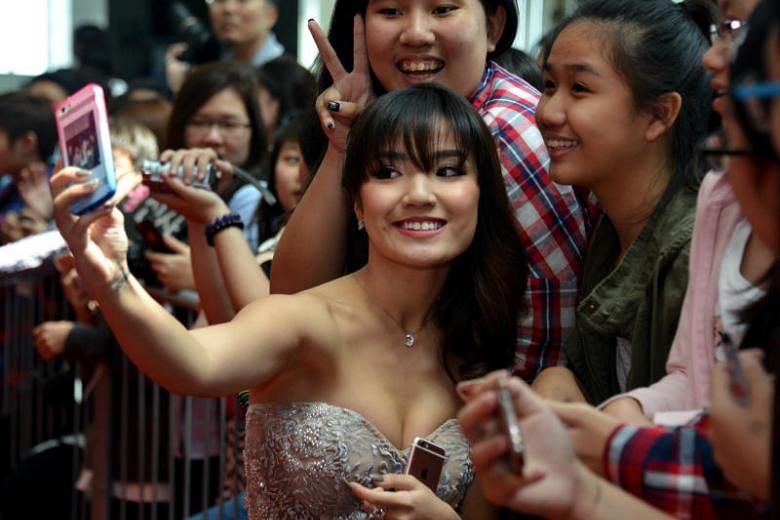Using the word "influencer" in a conversation these days seems to inevitably draw emotional responses. My girlfriends and I have a love-hate relationship with these social media personalities, who seem to incessantly flaunt their perfect bodies and lifestyles on platforms like Instagram without restraint.
Not only do they not hold "real" jobs, they also have the audacious ability to earn wages that far outstrip the average graduate salary through sponsored content from brands.
They should stop peddling consumerism and materialism to us through advertisements masquerading as aesthetically pleasing content, we protest. But we continue to surreptitiously lap up what they produce anyway - after all, don't we, too, aspire to look like these beautiful people, and harbour a desire to visit the same breathtaking travel destinations or be seen at the hip restaurants that they frequent?
At the heart of our reservations about supporting such influencers lies the assumption that they have to sacrifice some degree of authenticity in order to subtly peddle the goods they are paid to promote. After all, the textbook definition of influencer in the modern understanding has a somewhat pejorative connotation.
According to UrbanDictionary.com, an influencer is "a makeup, hairstyle, or fashion blogger who... gets free products from (companies that) fall in their trap of fake fame".
It refers not so much to people who are thoroughly influential in terms of being thought leaders in a particular industry or community, but to those who are superficial and focused on profits over ethics.
Sentiment against the pretensions of such "influencers" reached a fever pitch in May, when it came to light that hundreds of online personalities had advertised the Fyre festival in the Bahamas - billed as a luxury getaway for the affluent - without disclosing that they were part of a marketing campaign. The event, which lacked basic amenities and spiralled into chaos, turned out to be a disaster.
I wonder if we can expand our concept of "influencer" and raise the standards for their behaviour and messages.
One of my favourite online personalities, 22-year-old Preeti Nair (@preetipls on Instagram), shot to fame when she parodied a Toggle video that was hosted by "fashion influencer" Saffron Sharpe. The video of Sharpe, who was tasked to mock the fashion sense of passers-by in Orchard Road, earned brickbats for being condescending. It was later taken down by Toggle in June last year. Nair's video, which featured scenes of herself laying claim to the dubious title of "fashion influenza" and sashaying down Orchard Road in outfits cobbled together from garbage bags, cleverly exposed the pretensions of Sharpe's clip.
She has since been featured in other pieces that have responded to crucial issues of representation and diversity, including one that took aim at casual racism and another that defended this year's Miss Singapore beauty pageant finalists, who were panned for not being pretty enough.
Two of her collaborators, design graduates Michelle Lee, 22, and Charlotte Tan, 23, have also gained a large following on social media (@youtiao666 on Instagram).
What started out as a comic series of the two women lip-syncing to popular songs while taking the mickey out of themselves has evolved into a full-fledged content channel which also sees them taking on advertising gigs for brands like mobile virtual network operator Circles.Life and cosmetics company Laneige.
Unlike some local influencers who got flak for not being transparent about advertising products, the Youtiao666 duo are upfront about the fact that they advertise for brands in order to earn a living, and often make self-deprecating posts that show they are aware of the perceived shallowness of the social media industry.
For every glamorous photo of themselves that they post, there are also others of themselves looking far less polished - and sometimes downright silly - without any makeup. They are also unafraid to speak their mind, and weigh in on current affairs through video collaborations with Preetipls.
It may seem like a small detail, but it sends an important message in an age when girls are often inundated with one too many images of good-looking but seemingly vapid female role models, that what they see on social media does not represent real life and that there is room for them to be subversive women of substance who make their opinions heard.
I also see Paralympians Theresa Goh (@wheelie_wonka) and Yip Pin Xiu (@yippinxiu) as inspiring role models on Instagram, and the duo's humorous banter in videos keeps them hugely relatable in ways that belie their status as sports stars.
Just last month, American media watchdog Common Sense Media rolled out a new metric that will indicate to parents whether a show prompts boys and girls to think beyond traditional gender roles.
This was done after it discovered through research that the perpetuation of gender stereotypes through media - particularly at an age when children are vulnerable and particularly receptive to subliminal messages hidden within these shows - can affect the children's career choices, self-worth, relationships and ability to achieve their full potential.
Even Netflix has introduced a category for shows that feature a strong female lead.
Just as we demand complexity, non-stereotypical representation and integrity from traditional sources of media, shouldn't the same extend to the realm of social media, since young people now spend so much time on these platforms?
"Influencer" should not be a dirty word. Instead, we can all play a part in shifting the definition of the word into one that is more progressive: either by being more selective in the content that we choose to consume, or by stepping up to create content that is balanced, thoughtful and which probes deeper beneath the surface.
•#opinionoftheday is a column for younger writers in the newsroom to write about issues that matter to them and their peers.
Correction note: An earlier version of this article misspelt Ms Preeti Nair's name. We are sorry for the error.


